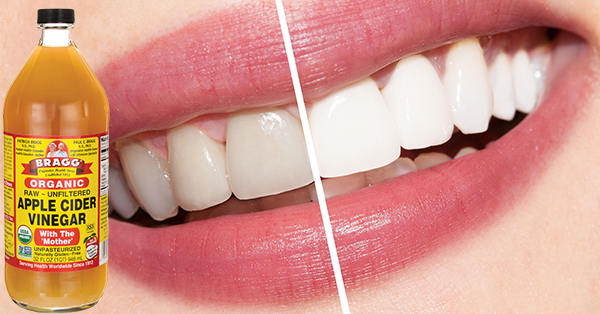Teeth whitening has become a significant concern for many individuals seeking to improve their smile and overall appearance. Various methods and products claim to provide effective results, but their safety and efficacy often come into question. One such method that has gained attention is the use of vinegar for teeth whitening. This article delves into the potential benefits and risks associated with using vinegar for this purpose, examining scientific evidence and expert opinions to provide a comprehensive understanding.
How Does Teeth Whitening Work?
Teeth whitening involves removing stains and discoloration from the tooth surface. There are two main types of stains:
Extrinsic Stains: These stains occur on the outer layer of the tooth (enamel) and are caused by foods, beverages, and smoking.
Intrinsic Stains: These stains are located within the tooth and can result from factors such as aging, certain medications, and excessive fluoride.
Whitening methods typically target extrinsic stains, with various products and treatments available, including:
Over-the-counter whitening toothpaste and strips
Professional whitening treatments at dental clinics
Home remedies, such as baking soda and hydrogen peroxide
SEE ALSO: What Are The Types of Teeth Whitening Products?
The Appeal of Vinegar for Teeth Whitening
Vinegar, particularly apple cider vinegar, has been touted as a natural remedy for various health issues, including teeth whitening. Each type of vinegar has a different acidity level, which can impact its effects on teeth. The acetic acid in vinegar is believed to help remove stains and whiten teeth by breaking down plaque and surface stains. Proponents argue that it is a cost-effective and readily available solution compared to commercial whitening products.
Scientific Evidence And Expert Opinions
Potential Benefits
Some anecdotal evidence suggests that vinegar can help whiten teeth by removing surface stains. Acetic acid in vinegar has antibacterial properties, which may contribute to better oral hygiene by reducing plaque buildup and bacteria that cause bad breath.
Risks and Concerns
Despite the potential benefits, there are significant concerns about using vinegar for teeth whitening:
Enamel Erosion: Vinegar’s high acidity can erode tooth enamel, the protective outer layer of the teeth. Enamel erosion can lead to increased sensitivity, susceptibility to cavities, and irreversible damage.
Increased Sensitivity: Regular use of acidic substances on teeth can cause heightened sensitivity to hot, cold, and sweet stimuli.
Gum Irritation: The acidic nature of vinegar can irritate the gums, leading to discomfort and potential inflammation.
Balanced pH: Maintaining a balanced pH in the mouth is crucial for oral health. The acidic nature of vinegar can disrupt this balance, potentially leading to an increased risk of cavities and other dental issues.
Research Findings
A study published in the journal Restorative Dentistry & Endodontics examined the effects of various acidic solutions, including vinegar, on tooth enamel. The findings indicated that vinegar significantly eroded enamel, highlighting the potential risks associated with its use for teeth whitening.
Another study in the Journal of Dentistry explored the effects of acidic solutions on enamel erosion and concluded that frequent exposure to acidic substances, such as vinegar, could lead to substantial enamel loss over time.
Professional Recommendations
Dental professionals generally advise against using vinegar for teeth whitening due to its high acidity and potential for enamel erosion. Instead, they recommend safer and more effective methods for achieving a whiter smile, such as:
Professional Whitening Treatments: Performed by a dentist, these treatments use high-concentration bleaching agents to provide noticeable and lasting results.
Over-the-Counter Whitening Products: Whitening toothpaste, strips, and gels can be effective for mild to moderate stains, provided they are used as directed.
Good Oral Hygiene Practices: Regular brushing, flossing, and dental check-ups can help maintain a healthy and bright smile.
Alternative Natural Remedies
For individuals seeking natural teeth whitening methods, several safer alternatives to vinegar are available:
Baking Soda: Known for its mild abrasive properties, baking soda can help remove surface stains without causing significant enamel erosion. It can be used alone or mixed with toothpaste for enhanced whitening effects.
Hydrogen Peroxide: A common ingredient in commercial whitening products, hydrogen peroxide has bleaching properties that can help whiten teeth. It should be used in low concentrations to avoid irritation and enamel damage.
Oil Pulling: This traditional Ayurvedic practice involves swishing oil (such as coconut or sesame oil) in the mouth to remove bacteria and improve oral health. While its whitening effects are minimal, it can contribute to overall oral hygiene.
Strawberries: Containing malic acid, strawberries are believed to help remove surface stains. However, their acidic nature requires cautious use to avoid enamel damage.
How to Use Natural Remedies Safely
When using natural remedies for teeth whitening, it is essential to follow guidelines to minimize potential risks:
Moderation: Use natural remedies sparingly to avoid overexposure to acidic substances.
Combine with Fluoride: Incorporate fluoride toothpaste into your routine to strengthen enamel and protect against decay.
Consult a Dentist: Seek professional advice before trying new whitening methods to ensure they are safe and suitable for your dental health.
Conclusion
While vinegar may seem like an appealing and inexpensive option for teeth whitening, its high acidity poses significant risks to dental health, including enamel erosion and increased sensitivity. Scientific evidence and expert opinions strongly discourage the use of vinegar for this purpose. Instead, safer and more effective alternatives, such as professional whitening treatments, over-the-counter products, and natural remedies like baking soda and hydrogen peroxide, are recommended.
Prioritizing good oral hygiene practices and seeking professional advice can help maintain a healthy, bright smile without compromising dental health.

